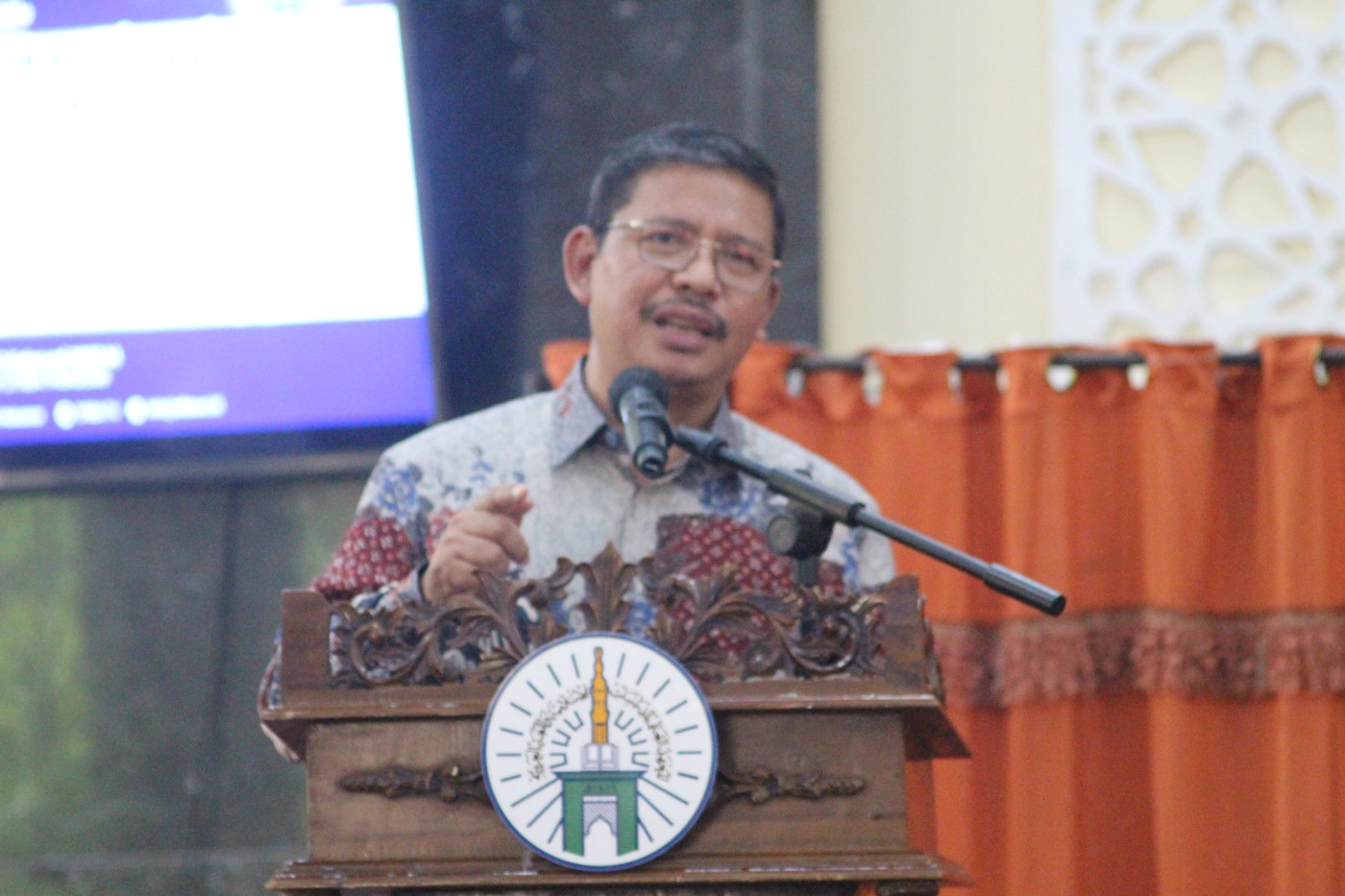(STIBA.ac.id) Makassar – Strengthening character is the most important and most expensive thing in Islamic-boarding-based educational institutions. One of its forms is the separation of men and women to keep the iffah (modesty). This was conveyed by the Director of Islamic Higher Education (Diktis) of the Ministry of Religion of Indonesia, Prof. Dr. Suyitno during his visit to STIBA Makassar, Thursday (3 of February 2022). He revealed this when responding to his audience at the Anas bin Malik Mosque which was only attended by students, while female students and lecturers followed online.
Prof. Suyitno explains one verse in Surah al-Hujurat which means, “O mankind, indeed We created you from a male and a female and made you into nations and tribes so that you may know each other. Verily, the most honorable of you in the sight of Allah is the most pious of you. Verily, Allah is All-Knowing, All-Knowing.” (Surat al-Hujurat: 13).
“Based on this verse, there are three concepts of life so that we can live in harmony. First, we must get to know each other, ta’aruf. I came here wanting to know more about STIBA. I do not want to get information that is just a second opinion. I have heard directly from the Chairperson of STIBA. I also received information from the Head of Department IV of Wahdah Islamiyah,” he added.
“This first point will bring up the second, namely tasamuh (accepting each other). We are tolerant people, inclusive individuals, not easily blaming other people’s opinions.”
“Students in STIBA learn fiqh of muqaranah al-mazahib (schools comparison). If we study fiqh, let alone have compared the opinions of the four schools of thought, then it turns out that Islam has not only one approach. There are many options in making decisions based on ijtihad, especially al-madzahib al-arba’ah. People who already have a broad view will be inclusive, not easy to blame people, and will feel good,” he explained further.
“After tasamuh, the third according to Prof. Suyitno is tahabbuh (loving each other). People can not conceivably know if they do not know each other, people can not love each other if there is no mutual inclusivism, holding each other up, not negating each other, acknowledging each other’s existence, and not denying others’ presence.”
“The message is very crucial for all of us, being a big campus is not only measured by the number of students. Being a big campus is not only measured by its reputation. Instead, being a big campus is measured by the amount of its contribution to the nation,” he concluded, ending his academic advice.
Prof. Dr. Suyitno was accompanied by the Head of Sub-Directorate for Institutional and Cooperation of the Ministry of Religion, M. Adib Abdushomad, Ph.D., and Head of Quality Assurance for Islamic Religious Higher Education (PTKI), Ahmad Mahfud Arsyad M.Ag.
On this occasion, the Head of Education Sector of Wahdah Islamiyah, Ir. Iskandar Kato, M.Sc. also delivered remarks. Ustadh Iskandar briefly explained Wahdah Islamiyah’s great concern for education. This includes making education the central theme of the Muktamar (congress) of Wahdah Islamiyah which was recently held and opened by the Vice President of the Republic of Indonesia.
Head of STIBA Makassar, Akhmad Hanafi Dain Yunta, Lc., M.A., Ph.D. who also delivered his remarks on the occasion, provided an overview of STIBA Makassar. He also explained some of STIBA’s agendas in the future, including the plan to open registration for four study programs in the upcoming academic year and his intention to immediately open a postgraduate program.

Leave a Reply